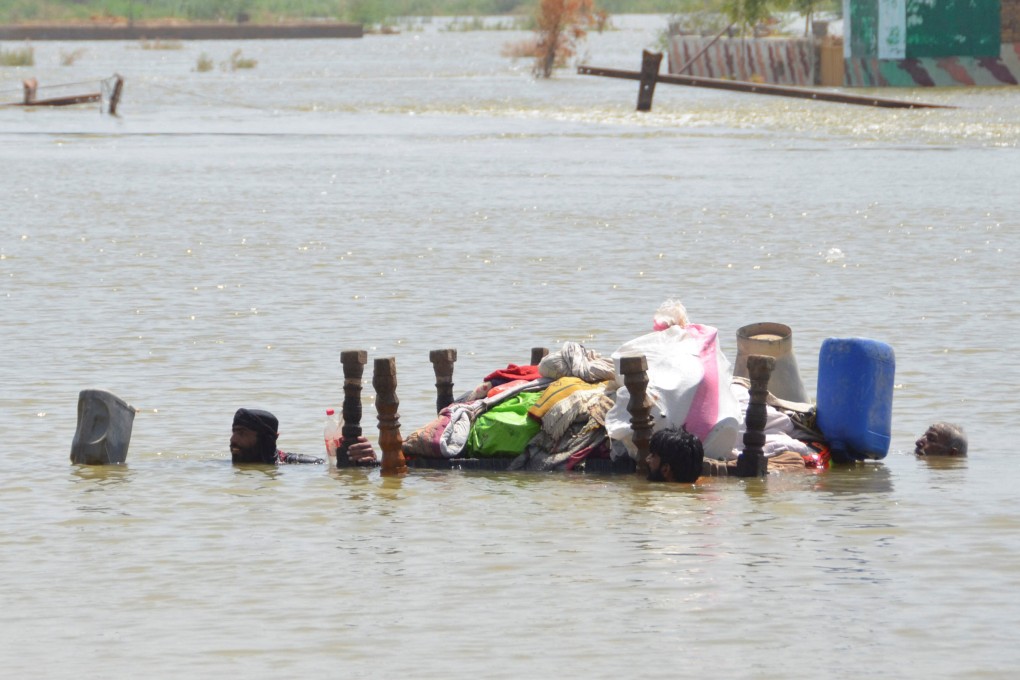Advertisement
The View | Pakistan floods latest sign of climate injustice for Global South
- Pakistan is one of many developing nations on the front line of climate change, with its struggling economy further strained by severe weather events
- In 2009, the Global North pledged US$100 billion by 2020 for climate change adaptation in developing nations. The Global South is still waiting for the funds
Reading Time:3 minutes
Why you can trust SCMP
5

Flash floods in Pakistan have killed more than 1,100 people, affected 33 million more, swept away 1 million homes and destroyed over 3,500km of roads. One-third of the country is submerged, and the number of people internally displaced from these torrential floods is more than those displaced from the war in Ukraine.
Pakistan faced a similar situation back in 2010 as well, and the number of people affected by heavy monsoon rains at the time reached 20 million. However, this year’s monsoon season and accompanying flooding are unparalleled in comparison.
Rainfall in Pakistan is 780 per cent higher than normal. Climate change is straining Pakistan’s already fragile economy, worsening food shortages, rendering spaces uninhabitable and posing a threat to millions of people.
Advertisement
The Global South is at the forefront of the climate catastrophe, and policies developed by the West are not helping poorer nations with climate adaptability. Torrential rains in 2020 submerged a quarter of Bangladesh and damaged millions of homes, while a protracted drought in northern Kenya is increasing the risk of malnutrition for rural communities.
These are some of the most recent instances of how billions of people living in developing nations are suffering the worst form of humanitarian calamity. In 2009, the Global North pledged to provide US$100 billion by 2020 for climate change adaptation and mitigation initiatives in developing nations at the UN climate change conference in Copenhagen. Fast forward to today and the Global South is still waiting for the promised funds.
Countries in the Global South only account for a small percentage of the world’s excess carbon dioxide emissions, but they are by far the hardest-hit by climate-change-related droughts, floods, famines, storms and deaths.
Advertisement
Select Voice
Select Speed
1.00x

